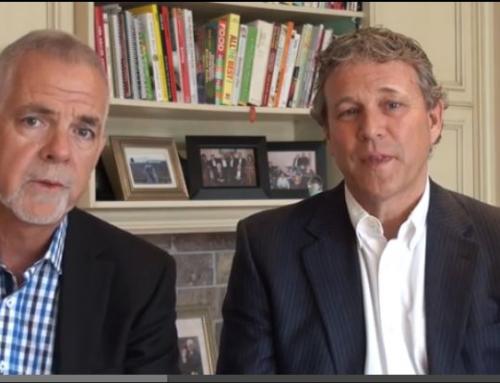 As a sales coach, I am often asked to offer tips about selling technique, but sometimes the best solution for increasing the effectiveness of any given organization’s sales strategy is simply to work on cultivating mental toughness.
As a sales coach, I am often asked to offer tips about selling technique, but sometimes the best solution for increasing the effectiveness of any given organization’s sales strategy is simply to work on cultivating mental toughness.
Why do we need to work on mental toughness? Because selling sometimes sucks!
David Sandler once said, “Anyone who loves making cold calls, probably doesn’t have to make them!”
Sales people face the following:
- Prospects ‘lie’ to you
- You’re told impolitely that the prospect has no interest in your product or service
- You’re ‘used’ for your product knowledge and expertise – something we call ‘free consulting’
- You’re told to ‘sharpen your pencil’ after you’ve made your proposal
- In general, you’re not going to be shown the common courtesies of normal human interaction – the dreaded ‘bums rush’ being the norm!
Let’s face it, not many people want to sign up for that!
A little exaggerated you say? Perhaps. Especially if you’ve already converted someone into becoming a customer and have had the opportunity to build trust. But, if you have to break into the markets, and you or your product are an unknown entity, you know that this is not far from the truth.
So what’s the answer?
Becoming ‘mentally tough‘ needs to become a part of your sales strategy.
There is a joke about success in golf that goes something like this, “Success in golf is 90 per cent mental. The other 10 per cent is mental.”
Selling, just as it is in golf, is often more about your mental endurance than it is about your selling skills. The following 7 sales tips will help you become more mentally tough.
7 Essential Tips to Add Mental Toughness To Your Sales Strategy
- Don’t confuse your ‘I’ (identity) with your ‘R’ (role)
The reality is, unless you have a world beating product with clear advantages and no competition, your product won’t be much different from the competition’s. Therefore expect to experience a lot of rejection, aggravation and disappointment. Start separating your ‘R’ (Role) from your ‘I’ (Identity). You need to compartmentalize your role as a sales person as simply being one of the many roles you play in your life (i.e. father, mother, friend, team member). Start recognizing that your prospect’s rejection is not of you as a person but of you as a sales person with a product they’re just not interested in. - Just do it!
One of my favourite quotes says, “You cannot fail at prospecting unless you fail to prospect.” One of the most important key indicators that distinguishes successful sales people is the fact they spend more time prospecting than their less successful colleagues. Less successful sales people tend to find excuses or procrastinate too much. “Procrastination is the thief of time,” and any action beats no action at all. So, just do it! - Block off time
The best way to ensure you spend sufficient time prospecting is to block off time in your schedule and dedicate it to prospecting. Make sure that you are committed to the time ‘blocked’ off and treat it as if you have an appointment. - Call it like you see it!
We encourage the sales people we work with to remember that they have equal business stature with prospects and have the right to be treated with respect. Just as a bully needs to be ‘called’ – so do prospects that treat you inappropriately. This can be done in a nurturing way, “Mr Prospect, I get the impression that I may have upset you for some reason and I’m not sure why. Am I reading the situation correctly?” - Learned Optimism – be careful of ‘the story’ you tell yourself
Optimism is a key ingredient for success in selling. Some people seem to be wired more optimistically than others and is this inherited or from experience? Probably a little bit of both.When we see or hear something, we are programmed to ‘tell ourselves a story’ which determines how we feel and act.Let’s look at a real life example. A prospect can fail to keep a promise to get back to you. Two ways to interpret this – one positive, the other negative. The negative one would be ‘the prospect can’t be interested, I’m not going to call them back.’ The positive would be ‘they have really busy schedules and/or some emergency got in their way. I’ll call to reschedule’Two outcomes – one positive , the other negative – simply because of the “story” you told yourself[Useful Source: ” Learned Optimism by Martin Seligman]- Don’t only go hunting for elephants
I like the suggestion to, “go hunting every day – be it rabbits, deer, elk or elephants.” The idea here is to always be prospecting and to hedge your bets – if you are only elephant hunting, you might get really hungry!- You only need 5 seconds of courage – mostly it’s only your ego that’s at risk
I wrote about this powerful statement in an earlier blog. It was Nelson Mandela who said something like “Courage is not about having no fear – but taking action despite the fear.” Sometimes we only need to say ‘yes’ to new challenges – like daring to go after a larger prospect as opposed to a smaller ‘safer’ one. As David Sandler said, “You can’t lose something you don’t have.”Here’s A Helpful Resource
I hope these 7 mental sales tips will help you increase the effectiveness of your current sales strategy. I’ve prepared a handy checklist on how to mentally prepare for each sales call.
And, I’m always interested in your thoughts. Has the mental side of selling been a challenge for you or your sales team?Please leave your comments below.
- Don’t only go hunting for elephants








Leave A Comment